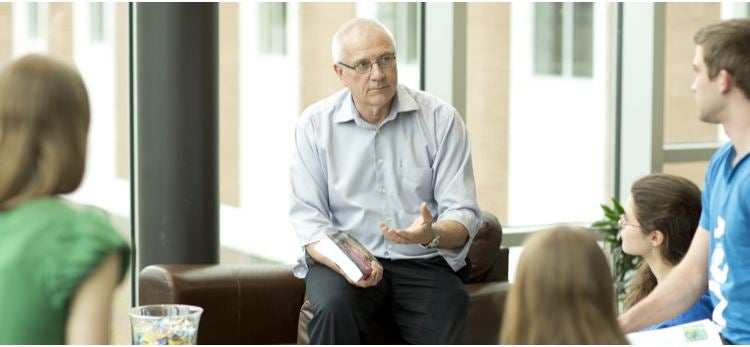

PACS professor Lowell Ewert and Math lecturer Judith Koeller co-teach the course, occasionally inviting guest speakers who work in the intersecting fields of math and peace. “We explore the peace implications of topics like democracy, social change, health, and environment,” Judith explained. In each topic there are many places that math and computer science play a role: election models that best reflect the popular vote, how killer drones interact with the laws of war, the ethics of predatory loans and misleading casino games, the racialization of search results" and the list goes on.
“The challenges and problems that the world faces today are far more complex and intertwined than we have seen before. The ‘silo’ approach to education, in which each discipline independently pursues excellence and assumes that collectively this will add up to a good society, is being tested,” Lowell remarked. Math for Good and Evil was created to more broadly and thoughtfully explore the peace implications of math-based initiatives. This is vital for students in every program, as an understanding of the role that math plays in society leads to an appreciation of its role in creating a more just world.
The course also encourages Math students to consider ethical implications in their field. “There are many math graduates from the University of Waterloo who never have any ethical training as part of their degree. This course gets students thinking about what kind of ethical issues they might face in their careers,” Judith explained.
Lowell noted that the course has been teaching him, too. “Before creating this course, I had no clue how math and peace intersected, but I’ve quickly learned how instrumental math is to peace. All my teaching has changed as a result of interactions with our math colleagues, as I now see math connections all over the place that I had not recognized before.”